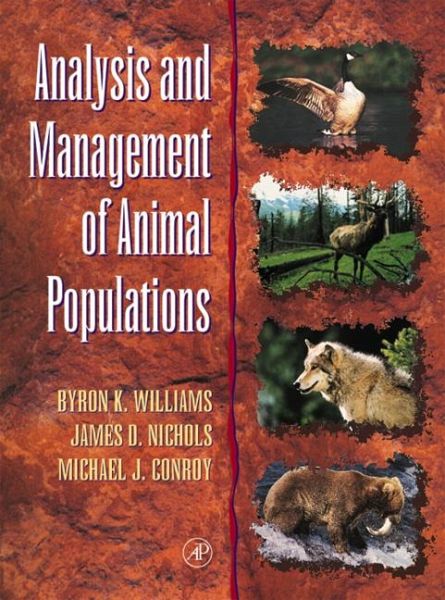
Analysis and Management of Animal Populations (eBook, ePUB)

PAYBACK Punkte
54 °P sammeln!
Analysis and Management of Animal Populations deals with the processes involved in making informed decisions about the management of animal populations. It covers the modeling of population responses to management actions, the estimation of quantities needed in the modeling effort, and the application of these estimates and models to the development of sound management decisions. The book synthesizes and integrates in a single volume the methods associated with these themes, as they apply to ecological assessment and conservation of animal populations. - Integrates population modeling, paramet...
Analysis and Management of Animal Populations deals with the processes involved in making informed decisions about the management of animal populations. It covers the modeling of population responses to management actions, the estimation of quantities needed in the modeling effort, and the application of these estimates and models to the development of sound management decisions. The book synthesizes and integrates in a single volume the methods associated with these themes, as they apply to ecological assessment and conservation of animal populations. - Integrates population modeling, parameter estimation and decision-theoretic approaches to management in a single, cohesive framework - Provides authoritative, state-of-the-art descriptions of quantitative approaches to modeling, estimation and decision-making - Emphasizes the role of mathematical modeling in the conduct of science and management - Utilizes a unifying biological context, consistent mathematical notation, and numerous biological examples
Dieser Download kann aus rechtlichen Gründen nur mit Rechnungsadresse in A, B, BG, CY, CZ, D, DK, EW, E, FIN, F, GR, HR, H, IRL, I, LT, L, LR, M, NL, PL, P, R, S, SLO, SK ausgeliefert werden.













